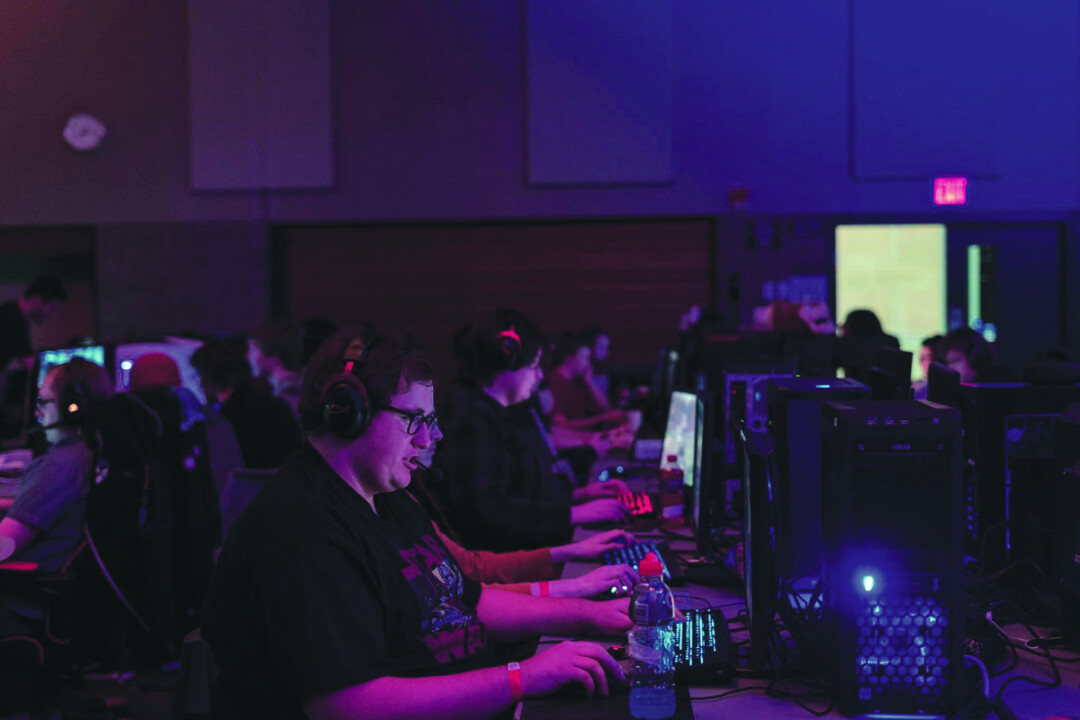UW-Stout Launches Esports Program

Building a competitive intercollegiate program from scratch is no small feat, but that is just what Andrew Cleveland and Matthew Gunderson are doing at UW-Stout. Cleveland, the assistant director of student life for the university, started working with to establish a brand-new esports program during the 2018-2019 school year. Gunderson, a business administration and psychology major, joined the team during the spring semester. The pair hopes to begin recruiting athletes during the spring semester so they can launch into competition in the fall of 2020. The two games they are focusing on are League of Legends and Overwatch.
Esports is competitive digital gaming, encompassing a wide range of systems and genres from single-player first person shooters to teamplay strategy and battle games. Though esports tournaments were originally organized through casual gaming clubs in the 2000s, over the years the phenomenon has grown exponentially. Gaming tournaments are sponsored by businesses of all sizes, and professional players relocate to hubs in order to practice with teammates and complete a season. In 2014, the League of Legends championship drew an online viewership of 27 million people, which was greater than that of the NBA finals, the World Series, or the Stanley Cup.
“Esports is a massive worldwide market, especially in Asia,” Gunderson said. “It’s finally entering the discussion with more traditional contact sports like football and soccer.”
Gunderson is the president of one of Stout’s gaming groups, the People’s Organization of Network Gaming. The student organization hosts days-long LAN parties where as many as 300 participants play video games with and against each other on a shared network. Smaller campus groups are sometimes more specific: one such organization focuses solely on Nintendo’s Super Smash Bros. game.
“I think this program will have a strong effect on Stout,” Gunderson said. He predicts there will be a lot of interaction between existing gaming groups and the official esports program as it grows. “There is a large gaming scene at the university, so I think Stout is in a unique position where the program will grow very, very fast.”
We have not just the program, but the culture,” Cleveland said. “The interest is already on campus and they’re organized ... being able to formalize a program that allows students to compete for the university in an official capacity was something we felt we wanted to pursue.”
Esports, like traditional athletics, requires teamwork, problem solving, strategic thinking, and work ethic. “We are hoping esports contributes to the educational landscape as much as it does the competitive landscape, and that it creates better graduates,” Cleveland said.
UW-Stout is working with the National Association of Collegiate Esports (NACE) to develop the program. NACE provides networking opportunities with other colleges, resources for varsity program development, and recruitment tools for more than 150 members. While the National Collegiate Athletic Association (NCAA) does not currently oversee esports, Cleveland is designing Stout’s program in compliance with NCAA guidelines. This way, the university will be ready to swing into action under the athletic organization if the opportunity presents itself.
In order to prepare for the program pilot, Cleveland and Gunderson will need not only need to recruit players, but they’ll have to find a coach. They are looking to faculty, staff, and even students to find someone with passion and skill to lead the team.
Although support from campus has been strong, “We’re sandlotting this program,” Cleveland joked. “It really feels like we’re kind of home-growing this,”
Those interested in learning more about UW-Stout’s esports program can fill out a form on the university website at www.uwstout.edu/life-stout/stout-esports. Students can also contact the Student Life & Services office at 715-232-2692.

